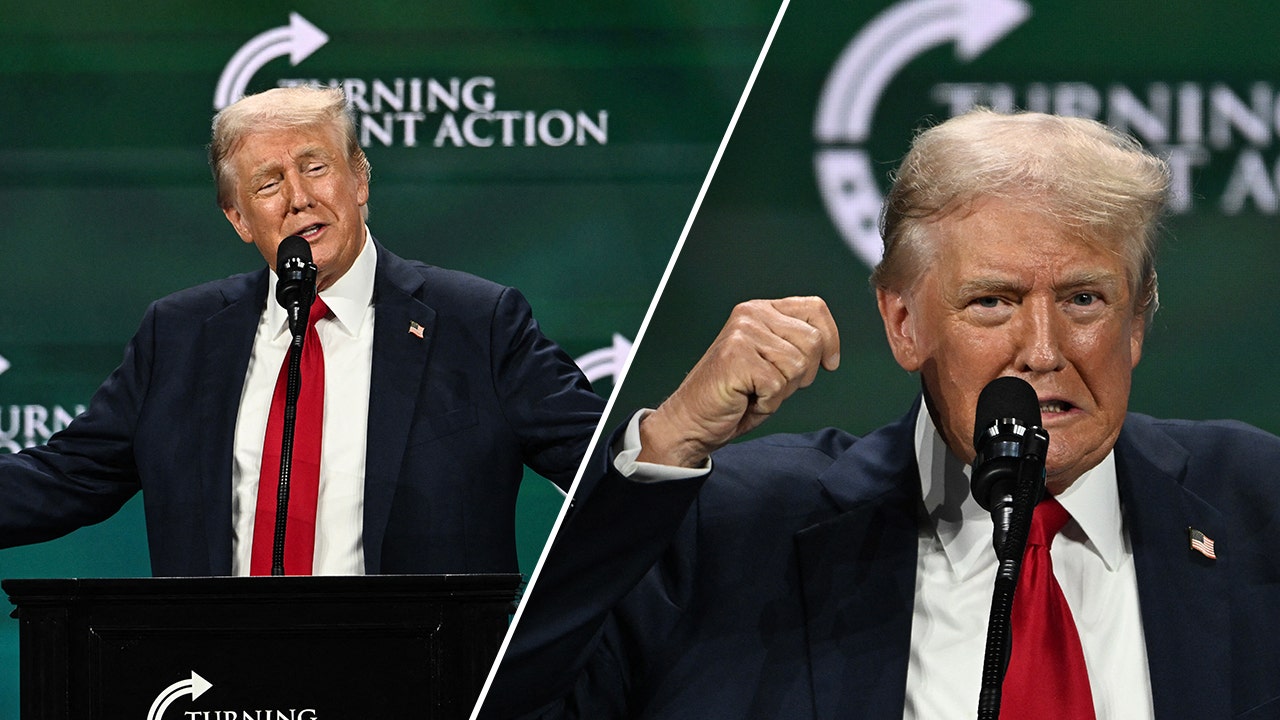World
Greek authorities rescue 100 migrants found in vessel off southern mainland
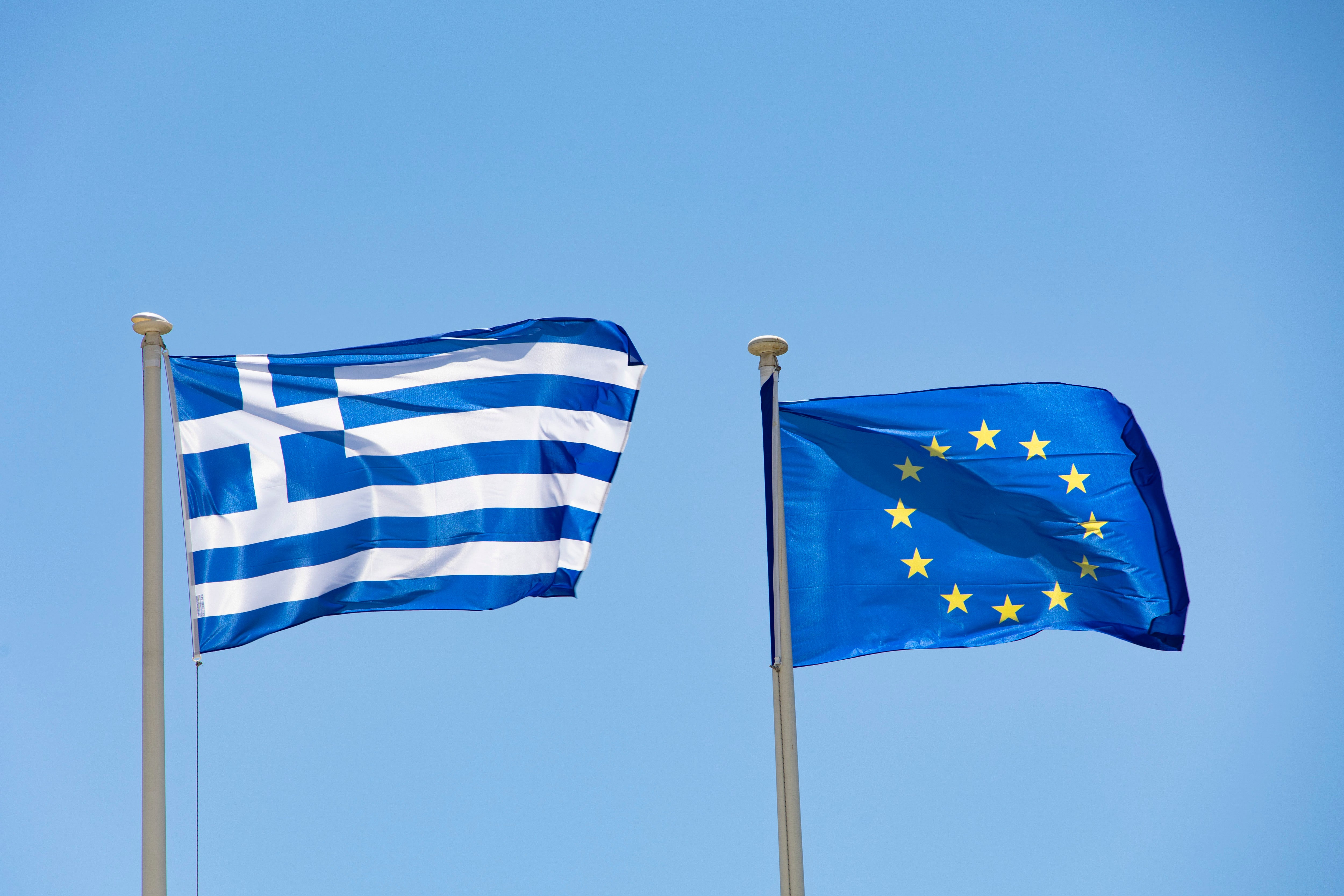
ATHENS, Greece (AP) — Greek authorities on Monday rescued 100 migrants found on a smuggling vessel in distress off the country’s southern mainland, officials said.
GREECE LEGALIZES SAME-SEX CIVIL MARRIAGE DESPITE ORTHODOX CHRISTIAN CHURCH OPPOSITION
The coast guard said the migrants were taken off their vessel by a tugboat that had been ordered to the area and safely carried them to the southeastern village of Monemvasia. No injuries were reported.
The Greek flag as seen on a flagpole waving in the blue sky during a summer sunny day at the Greek capital city Athens. July 2022 (Photo by Nicolas Economou/NurPhoto via Getty Images)
The smuggling vessel was located off Cape Maleas, at the southeastern tip of the Peloponnese region, the coast guard said.
No further detail was immediately known on the nationalities of the migrants, the type of vessel they were on or where they had sailed from.
The area where the incident occurred is on a route used by smugglers to send migrants in overcrowded sailing yachts from Turkey to Italy, skirting southern Greece and avoiding the heavily patrolled waters off the eastern Aegean Sea islands.

World
RFK Jr Questions Trump's Recent Pro-Crypto Tone as the Two Vie for Votes
World
Mastering 'the art of brainwashing,' China intensifies AI censorship
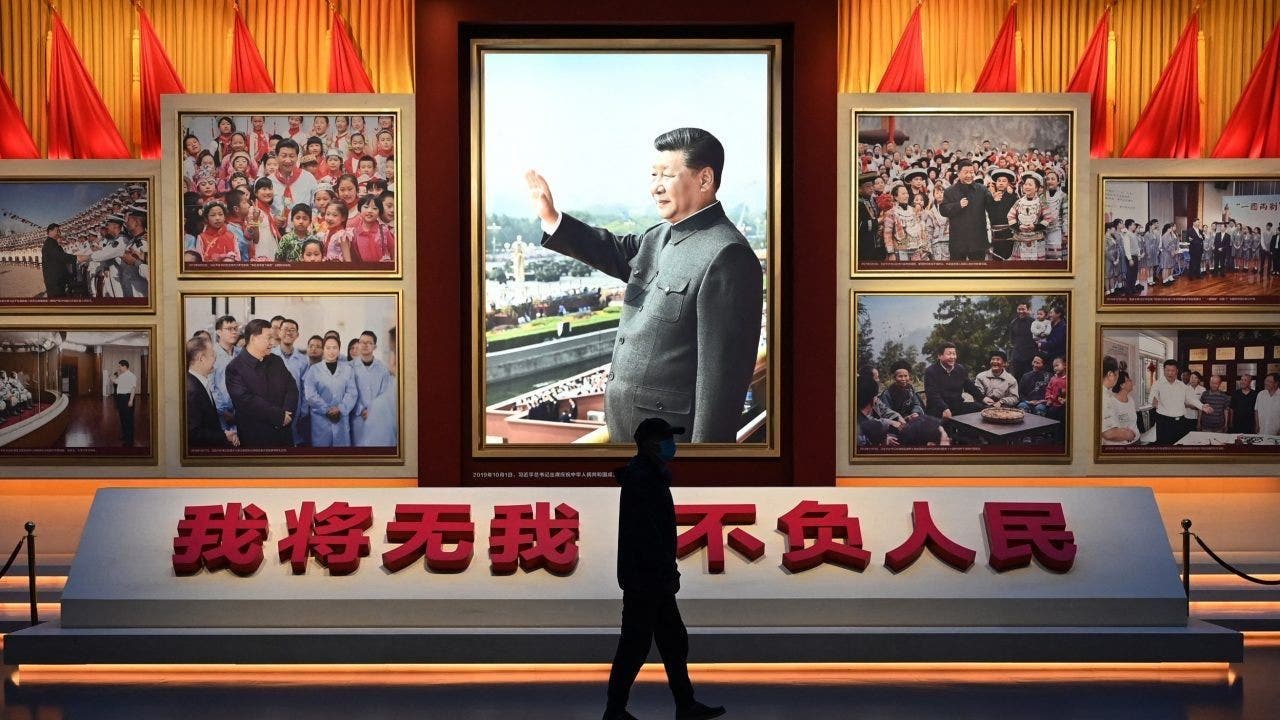
China has once again extended its policy of censorship and surveillance as it looks to keep artificial intelligence (AI) models in check even as it races to advance the ever-expanding technology.
The Chinese Communist Party (CCP) has introduced more regulative measures to make sure its home-based tech companies adhere to the party’s ideological rules.
All AI firms are required to participate in a government review which analyzes the companies’ large language models (LLMs) to ensure they “embody core socialist values,” as first reported by the Financial Times last week.
A man walks past a photo of Chinese President Xi Jinping at the Museum of the Communist Party of China in Beijing on March 3, 2023. (Greg Baker/AFP via Getty Images)
A NEW BREED OF MILITARY AI ROBO-DOGS COULD BE MARINES’ NEW SECRET WEAPON
China has long worked to suppress information accessible over the internet through the use of its “Great Firewall” — which has been used to block a litany of items perceived as bad for the CCP, such as information surrounding the 1989 Tiananmen Square massacre or memes comparing Chinese President Xi Jinping to Winnie the Pooh.
This firewall is being extended to the AI arena as China rushes to advance its technologies while still governing the content it creates.
China’s Cyberspace Administration of China (CAC) is now requiring AI companies like ByteDance, Moonshot and 01.AI to take part in a review process that analyzes how effectively their programs are censoring the LLMs they are building.
Chatbot systems are being developed to not only collect sensitive keywords but to also block information on questions relating to banned topics, often involving queries relating to human rights.
The AI systems in turn spit out responses like “try a different question” or “I have not yet learned how to answer this question. I will keep studying to better serve you.”
But in a move to prevent the chatbots from blocking too many questions, CAC policies dictate that LLMs should not reject more than 5% of all questions, according to the Financial Times report.
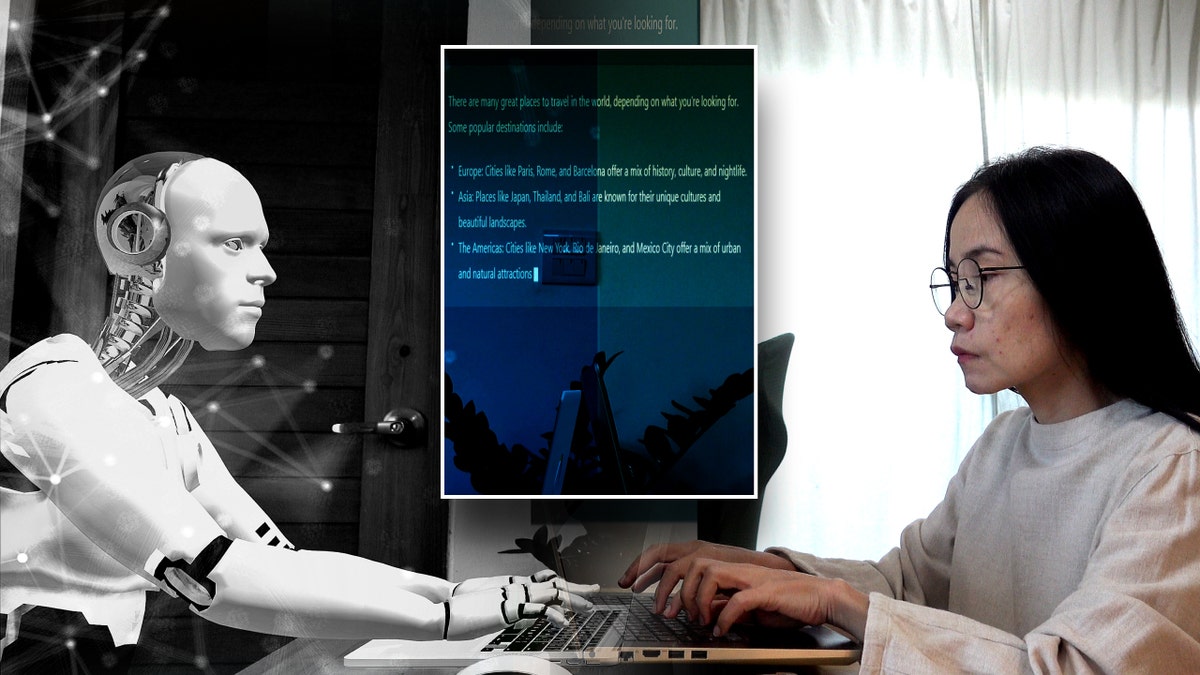
Chatbot systems are being developed to not only collect sensitive keywords but to also block information on questions relating to banned topics. (Getty Images)
WHAT IS ARTIFICIAL INTELLIGENCE?
Instead, blanket answers deemed politically correct have been created to answer specific types of questions, though controlling LLMs responses is an uphill battle for developers.
China’s continued pursuit to control the narrative among its own population speaks to a greater threat, AI expert Arthur Herman, senior fellow and director of the Quantum Alliance Initiative with the Hudson Institute, told Fox News Digital.
“That is the future that China has charted for its own citizens,” Herman said. “This is also how they see… being able to control the world of others.”
Herman pointed to China’s burgeoning relationship with the global south, where social media platforms like WeChat have taken off.
“There will inevitably be a social control, a mind control, element that goes into those programs… and to shape a world that looks more and more like China wants it to look,” he said.
Herman also warned that these strategies are not only playing out on internet platforms in authoritarian nations, but anywhere that the platforms are accessible, including the U.S.
“They have mastered the art of brainwashing through TikTok,” Herman said. “Chinese engineers have found a way to create a social media platform which is highly addictive, and which is also highly geared towards brainwashing its users to see the world in a certain way and to respond to visual and audio cues in a certain way.”
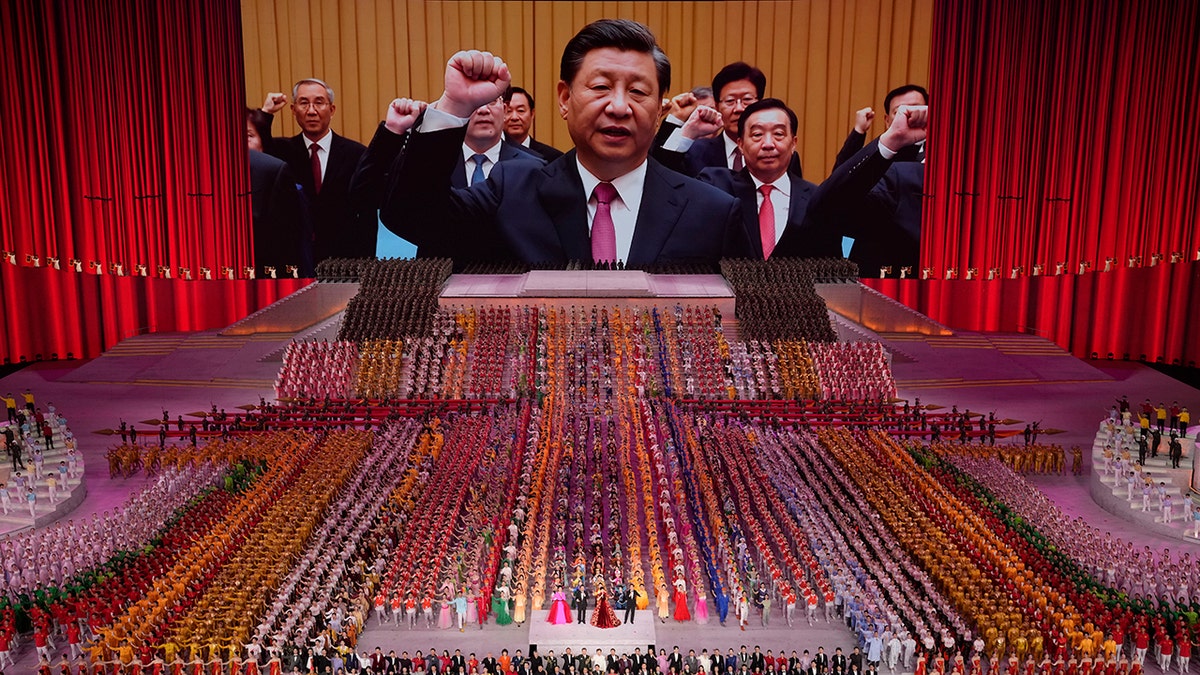
Chinese President Xi Jinping is seen leading other top officials pledging their vows to the party during a gala show ahead of the 100th anniversary of the founding of the Chinese Communist Party in Beijing on June 28, 2021. (AP Photo/Ng Han Guan)
Herman said China’s use of TikTok technologies is just a “foretaste” of how Beijing can use AI applications to manipulate populations beyond its borders.
“China sees AI as a means by which to change people’s minds,” he said. “AI’s ability to enhance those kinds of brainwashing and mind control applications is so powerful…that even when you’re not actually under a surveillance camera, even when you’re not actually listening to or watching government-inspired propaganda… there are other subtler ways in which your mind is being changed and adjusted simply by your interaction with things that are taking place in daily life — which are more and more directed by how the Communist Party wants you to see the world.”
World
Where are the world’s millionaires and how is wealth divided globally?

The world has at least 58 million US dollar millionaires, accounting for 1.5 percent of the global adult population, according to the 2024 UBS Global Wealth Report (PDF), which sampled 56 markets that account for 92 percent of global wealth.
The United States has the highest number of millionaires, with some 21.95 million individuals having wealth in seven figures or more. China comes at a distant second with some 6.01 million millionaires, followed by the United Kingdom (3.06 million), France (2.87 million) and Japan (2.83 million).
UBS defines wealth as the value of financial assets and real assets minus debts held by a household.
Global wealth, in dollar terms, grew by 4.2 percent in 2023 after a decline of 3 percent in 2022, according to UBS.
“If you think of millionaires or the wealthy in general, there’s kind of an indigenous, core of millionaires that has a strong attachment to the country. Then there is a more mobile element that globally [is able to] fairly easily switch domiciles,” Samuel Adams, an economist at UBS, told Al Jazeera.
By 2028, the UK is expected to lose the most millionaires – nearly one in six of its millionaires will lose that status. The Netherlands is another country set to lose 4 percent of its millionaires by 2028.
“The point here with the Netherlands and the UK that we’re making is that both of these countries already have a lot of millionaires – they have a growing core. But then you have a very mobile [element] working around that. And it might be that, in the global competition for wealth, they could see some outflows of the more mobile element of the wealthy. Which doesn’t necessarily mean the economy isn’t working. There’s still wealth being created in those countries. It’s just that the people who are mobile might consider all the places that they want to domicile to.”
How is wealth divided globally?
Almost half of the world’s wealth, 47.5 percent or $213 trillion, is held by just 1.5 percent of the global adult population, according to the Global Wealth Report. These are households that hold more than $1m.
In contrast, those with a wealth of less than $10,000 hold just 0.5 percent ($2.4 trillion) of global wealth, but make up 39.5 percent of the world’s adults.
Households with a wealth of between $10,000 and $100,000, representing 42.7 percent of adults, account for 12.6 percent of global wealth or $56.2 trillion.

The fastest-growing millionaires (2000-23)
In terms of wealth per adult, the world’s population has made substantial progress since the beginning of the millennium. The percentage of adults whose wealth exceeds $1m tripled from 0.5 percent to 1.5 percent.
Since 2000, Qatar saw the greatest increase in the number of millionaires, which rose from 46 to 26,163. China saw the second largest increase, from 39,000 to 6,013,282 millionaires, followed by Kazakhstan (918 to 44,307).

“I think it’s important to appreciate that in general, wealth grows kind of proportionate to economic growth, as well as kind of vaguely to asset price growth,” Adams said.
“Emerging market economies such as China, especially if we think back to the 2000s, which was in a very different stage, Russia equally, tend to see more wealth growth in general, and then it also helps if you have a certain concentration in a sector, for example, that sees particular growth. So commodity exporters – thinking of Russia, but also some Middle Eastern countries – tend to see very fast accumulation of wealth, particularly in the top 10 percent of the wealth bracket, which supports millionaire growth.”
UBS said over that the 15 years that it has published its report, the Asia Pacific region has posted the biggest growth in wealth, up almost 177 percent, followed by the Americas at nearly 146 percent, while Europe, the Middle East and Africa (EMEA) was up just 44 percent.
The highest share of millionaires
The US hosts 38 percent of the world’s millionaires, Western Europe 28 percent and China 10 percent.
By country, in percentage terms, Switzerland has the highest share of millionaires, with 12 in every 100 people having a wealth of more than $1m. This is followed by Hong Kong, where eight in every 100 people are millionaires, Australia (seven in 100), the Netherlands (seven in 100) and the US (six in 100).

Explore the table below to see how millionaire wealth has changed in different countries.
-

 World1 week ago
World1 week agoOne dead after car crashes into restaurant in Paris
-

 Midwest1 week ago
Midwest1 week agoMichigan rep posts video response to Stephen Colbert's joke about his RNC speech: 'Touché'
-

 News1 week ago
News1 week agoVideo: Young Republicans on Why Their Party Isn’t Reaching Gen Z (And What They Can Do About It)
-

 Movie Reviews1 week ago
Movie Reviews1 week agoMovie Review: A new generation drives into the storm in rousing ‘Twisters’
-

 News1 week ago
News1 week agoIn Milwaukee, Black Voters Struggle to Find a Home With Either Party
-

 Politics1 week ago
Politics1 week agoFox News Politics: The Call is Coming from Inside the House
-

 News1 week ago
News1 week agoVideo: J.D. Vance Accepts Vice-Presidential Nomination
-

 World1 week ago
World1 week agoTrump to take RNC stage for first speech since assassination attempt










